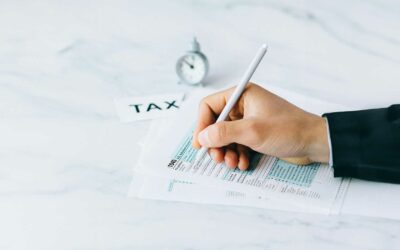At Continuum, we are great enthusiasts for ISAs. They can form the basis of most people’s investment portfolios. The fact that the taxman cannot help himself to a share of the potential growth they earn can help them grow faster and because he cannot take a share when you come to access your money, they can be more rewarding overall.
In fact, their tax efficient status is so attractive, the government limits how much you can invest in ISAs each year.
Book a free initial consultation
Book an initial consultation with one of our independent financial advisers or call us on 0345 643 0770 if you would like to discuss further.
What is the limit on ISA investment?
The simple answer is that if you are a UK taxpayer you can invest up to £20,000 in an ISA or into a combination of ISAs in the current tax year. This means that you can invest up to £40,000 as a couple.
Unlike some other allowances, there is no scope for dipping back into previous years to take advantage of unused allowances. Your allowance runs out at the end of April 5th each year, to be replaced by a new allowance for the new tax year. The £20,000 limit has been with us for a few years now and may well remain for a few more. On the bright side this could mean, if you had enough spare cash at the right time, you could invest up to £40,000 as an individual or £80,000 as a couple by using two year’s allowances in the first and second weeks of April, but this is usually as far as the allowance can be stretched.
It is possible to inherit an allowance if your spouse or civil partner dies, and there is a window of opportunity for Junior ISA holders. 16 and 17-year-olds can open an adult cash ISA as well as a Junior ISA, taking advantage of two allowances. These are mainstream opportunities you may be able to consider.
So the question is – what should you do if you have used up your available ISA allowances and still have cash to invest?
After you have maxed your ISA allowance
Once someone has used up their £20,000 allowance for this tax year, any remaining investment must go elsewhere, which may allow some investors to take advantage of the dividend allowance, and personal allowance they may have:
- You do not pay tax on any dividend income that falls within your Personal Allowance (the amount of income you can earn each year without paying tax).
- Individuals have a dividend allowance currently of £2000 for tax year 2021/22.
Making other allowances work as hard as possible starts to look a little complicated.
The personal savings allowance is currently £1,000 for non-taxpayers or those paying the basic tax rate, and £500 for higher-rate payers. Additional-rate taxpayers do not get an allowance. A consideration could be to look at a general investment account this could be the simplest way to make use of these allowances, but they are inevitably less efficient than an ISA at reducing your tax burden.
In addition, if you have investments that are generating an income or if you hold bonds, you could consider discussing with an independent financial adviser whether these investments will be better placed in your ISA.
Any investments held outside the ISA could currently potentially lead to a capital gain tax liability when they are realised in the future.
For those stocks and other holdings that do pay a dividend, you can take £2,000 a year free of income tax when you hold them in a general account – whereas the maximum amount you can take in income from bonds without incurring tax is £1,000.
Investors also pay lower income tax rates on dividend payments. This is 7.5% for basic-rate taxpayers, 32.5% for higher-rate payers and 38.1% for those paying the additional tax rate. By contrast, once they have used up their personal savings allowance any income from bonds in a general account is subject to full income tax.
Getting some help
As this brief introduction shows, the tax position on investments outside an ISA can be complicated. Working your way through the rules and regulation will be easier with some expert help.
At Continuum we can help. Not only can we explain the tax liabilities of your investment plans, we can help you reduce them – or even suggest alternatives, such as putting more money into your pension if that is appropriate for you.
A call to us could be the best way to make your investments work harder, particularly in an economy which is changing fast. Call us now for the help you need.
The information contained in this article is based on the opinion of Continuum and does not constitute financial advice or a recommendation to suitable investment strategy, you should seek independent financial advice before embarking on any course of action.
The value of investments can fall as well as rise and you may get back less than you invested.
Levels and basis of reliefs from taxation are subject to change and depend upon your personal circumstances.



